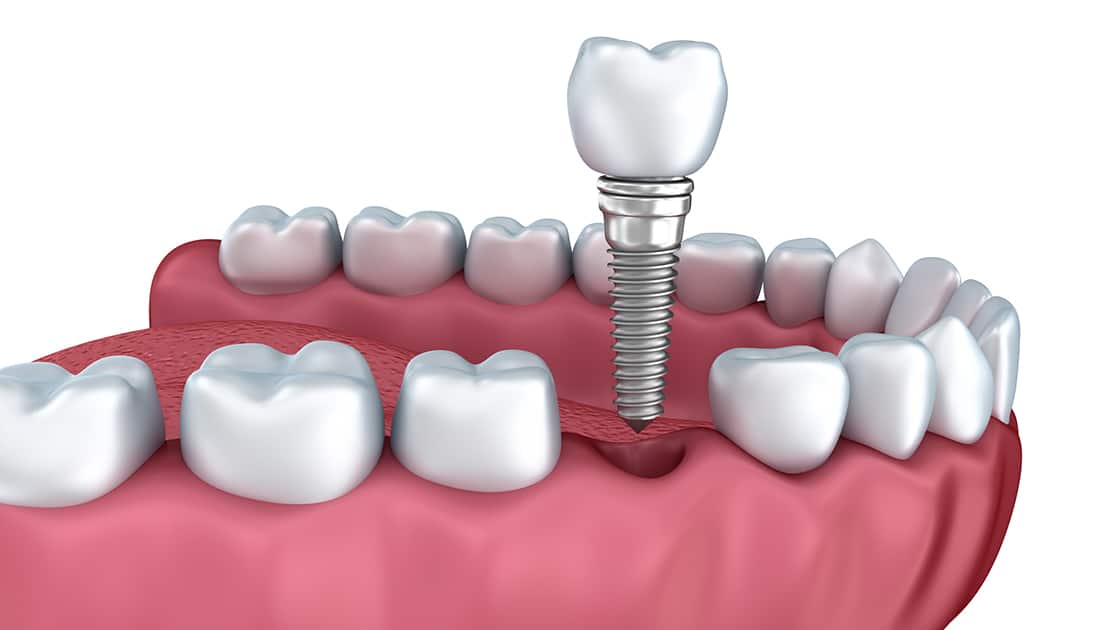
Getting dental implants can be very beneficial for the appearance of a patient’s teeth and their overall dental health. If you are missing a tooth, Dr. Skoulas will generally recommend a dental implant be installed right away. One of the main reasons is because the implant is effective in creating a natural appearance of the teeth, but another reason is the long-lasting results and oral health benefits.

It is very rare for dental implants to cause any problems. With such a high success rate, most of the time, dental implant restoration is never needed. However, if an accident leads to a damaged implant, patients in San Francisco and Embarcadero can call our practice at any time to determine whether dental implant restoration is needed.
Why Dental Implants Can Become Loose
In rare instances, the titanium implant may not have properly fused with the patient’s jawbone, making the implant loose over time. The fusion process can take several months to complete after getting dental implants installed, and it’s possible that patients won’t notice their implant is loose until several months following the dental implant procedure. However, once the loose implant is identified, it’s critical to call Dr. Skoulas immediately to determine whether dental implant restoration is needed.
Another reason implants can become loose and require the need for dental implant restoration is if the patient develops an infection or gum disease. These could lead to bone deterioration around the implant and cause it to loosen. If you notice anything different about the teeth, contact Dr. Skoulas immediately. If dental implant restoration is needed, getting it done right away could prevent future problems from occurring and make the entire process much easier.
Restoring Dental Implants
Identifying A Damaged Dental Implant
Most of the time, a damaged dental implant will be obvious. It could be in the form of being loose, chipped, cracked, or fractured. However, a less common way to identify and potentially prevent a damaged implant is by noticing redness in the gums. This symptom can happen for many reasons and could lead to an infection and, eventually, bone deterioration. Patients sometimes make the mistake of thinking their gums don’t have any effect on the actual implant, but the reality is gum health is critical for healthy implants. Dental implant restoration can often be prevented by identifying these signs early and contacting Dr. Skoulas.
